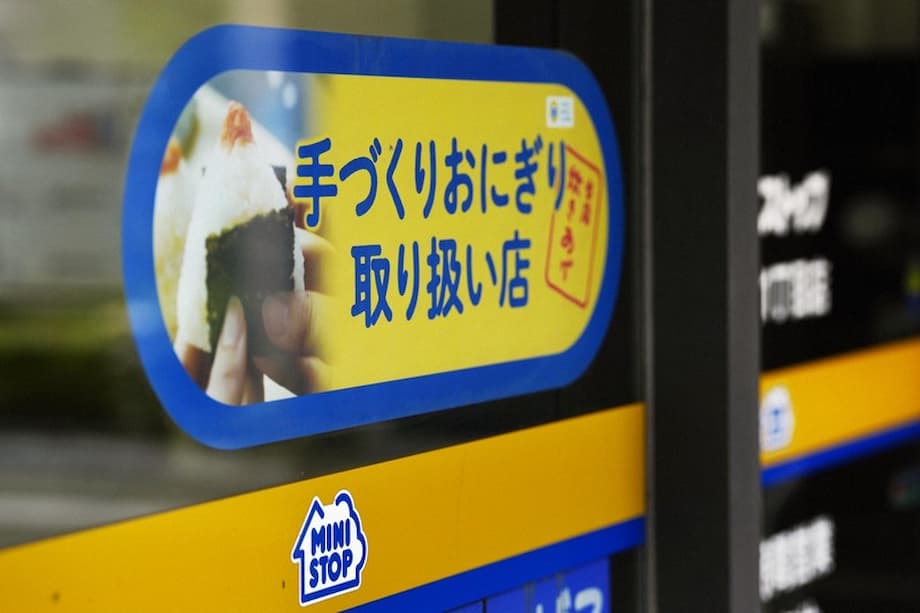Ministop’s Expiry Date Scandal: What Happened and Why It Matters
One of Japan’s largest convenience store chains, Ministop, has come under intense scrutiny after revelations that staff at multiple locations falsified expiry dates on freshly prepared foods. The scandal, which erupted in mid-August 2025, has led to the suspension of deli sales at approximately 1,600 stores nationwide. While no health issues have been reported, the incident has sparked widespread concern about food safety, consumer trust, and the pressures facing Japan’s convenience store industry.
- Ministop’s Expiry Date Scandal: What Happened and Why It Matters
- How the Scandal Unfolded
- Why Expiry Dates Matter: Food Safety and Consumer Trust
- Inside Ministop: A Unique Place in Japan’s Convenience Store Landscape
- How Did the Falsification Happen?
- Company Response and Public Reaction
- Broader Implications for Japan’s Convenience Store Industry
- Regulatory and Legal Ramifications
- What Happens Next for Ministop?
- International Perspective: Why This Story Resonates
- In Summary
How the Scandal Unfolded
The issue first came to light when Ministop, a subsidiary of retail giant Aeon Co., discovered irregularities at 23 of its stores across seven prefectures, including Tokyo, Osaka, Kyoto, Saitama, Aichi, Hyogo, and Fukuoka. According to company statements and media reports, some store workers extended expiry dates by delaying the application of labels for one to two hours after food was prepared. In other cases, staff removed original expiry stickers and replaced them with false dates, effectively prolonging the shelf life of products such as onigiri rice balls, bento lunch boxes, and other deli items.
Ministop responded by halting the sale of in-store-cooked rice balls and bento boxes from August 9, 2025. As further irregularities were uncovered, the company expanded the suspension to all in-house prepared deli items on August 18, affecting around 1,600 stores with in-store kitchens. The company continues to sell factory-made products, which are not implicated in the scandal.
Why Expiry Dates Matter: Food Safety and Consumer Trust
Expiry dates are a critical component of food safety, especially for perishable items like those prepared fresh in convenience store kitchens. In Japan, where convenience stores (known as “konbini”) are an essential part of daily life, consumers rely on accurate labeling to ensure the food they purchase is safe to eat. Falsifying expiry dates undermines this trust and raises the risk of foodborne illness, even if no cases have been reported in this instance.
Food safety scandals can have far-reaching consequences in Japan, a country known for its high standards in food hygiene and consumer protection. The Ministry of Health, Labour and Welfare sets strict guidelines for food labeling, and violations can result in severe penalties, including fines and reputational damage. In this context, even a relatively small number of stores engaging in misconduct can have a significant impact on a brand’s image.
Inside Ministop: A Unique Place in Japan’s Convenience Store Landscape
Founded in 1980, Ministop is one of Japan’s “big five” convenience store chains, alongside 7-Eleven, FamilyMart, Lawson, and Daily Yamazaki. As of July 2025, Ministop operated 1,818 stores nationwide, making it a major player, though it is smaller than the top three chains (for comparison, 7-Eleven boasts over 21,000 outlets in Japan).
What sets Ministop apart is its in-store kitchen model. Unlike most competitors, many Ministop locations prepare sandwiches, snacks, and bento boxes on demand, offering customers freshly made meals and even seating areas to eat immediately. This approach has been a selling point for the brand, but it also introduces additional food safety challenges, as staff must adhere to strict protocols for preparation, storage, and labeling.
How Did the Falsification Happen?
According to company investigations and media coverage, the expiry date falsification occurred in two main ways:
- Delaying the application of expiry labels by one to two hours after food was prepared, thereby extending the apparent shelf life.
- Removing original expiry stickers and replacing them with new ones bearing later dates.
These actions were reportedly carried out by staff at 23 stores, with the highest concentration (11 stores) in Osaka Prefecture. Kyoto had three affected stores, and the remaining nine were spread across Tokyo, Saitama, Aichi, Hyogo, and Fukuoka. The company has not publicly identified whether the misconduct was due to pressure to reduce food waste, meet sales targets, or other factors, but such pressures are not uncommon in the highly competitive convenience store sector.
Company Response and Public Reaction
Ministop has issued multiple apologies to customers and stakeholders, acknowledging the significant inconvenience and loss of trust caused by the incident. In a statement, the company said:
We sincerely apologize to our customers who purchased handmade onigiri and bento boxes, as well as to all other concerned parties, for the significant inconvenience caused.
The company has pledged to conduct a thorough investigation and implement improvement measures before resuming the sale of in-store-cooked products. Ministop has also emphasized that no health issues have been reported as a result of the falsified expiry dates, and that the suspension is a precautionary measure to ensure customer safety.
Public reaction has been swift, with many customers expressing shock and disappointment. Social media and news comment sections have featured comments from consumers who feel betrayed by a brand they trusted for fresh, safe food. Some have called for stricter oversight and transparency in the industry, while others have questioned whether similar practices might be occurring at other chains.
Broader Implications for Japan’s Convenience Store Industry
The Ministop scandal comes at a time when Japan’s convenience store sector is facing multiple challenges, including labor shortages, rising costs, and increased scrutiny over food waste and sustainability. Convenience stores are a cornerstone of Japanese urban life, offering everything from meals and snacks to bill payment and postal services, often operating 24 hours a day.
Food waste is a particular concern. Stores are under pressure to keep shelves stocked with fresh items at all times, but unsold food must be discarded once it passes its expiry date. This creates a tension between minimizing waste and maintaining food safety standards. Some industry observers speculate that this pressure may have contributed to the misconduct at Ministop, though the company has not confirmed this as a motive.
Experts warn that even isolated incidents can erode public trust in the entire industry. Dr. Yuko Tanaka, a food safety specialist at Tokyo University, explained:
Japanese consumers expect a very high level of safety and transparency from convenience stores. When that trust is broken, it can take a long time to rebuild, not just for one company but for the sector as a whole.
Regulatory and Legal Ramifications
Japan’s food labeling laws are among the strictest in the world. The Food Sanitation Act requires accurate labeling of expiry dates, and violations can result in administrative penalties, fines, and even criminal charges in cases of gross negligence or harm. While no illnesses have been linked to the Ministop scandal, authorities may still investigate to determine whether further action is warranted.
In past cases, food safety scandals have led to sweeping reforms and increased oversight. For example, after a series of food poisoning incidents in the early 2000s, Japan strengthened its food safety regulations and established the Food Safety Commission to coordinate responses to such crises. The Ministop case may prompt renewed calls for audits and stricter enforcement, particularly for in-store prepared foods.
What Happens Next for Ministop?
Ministop has stated that it will not resume the sale of in-store-cooked items until a full investigation is complete and new safeguards are in place. The company is expected to review its training, supervision, and labeling procedures to prevent a recurrence. Industry analysts say that regaining consumer trust will be a long process, requiring transparency, accountability, and possibly third-party audits.
Meanwhile, competitors are watching closely. While no other major chains have reported similar incidents, the scandal has put the entire industry on alert. Some experts predict that other convenience store operators may proactively review their own practices to avoid becoming the next headline.
International Perspective: Why This Story Resonates
The Ministop scandal has attracted international attention, with outlets like the BBC and global news aggregators reporting on the incident. Japan’s reputation for food safety and meticulous attention to detail makes such lapses particularly newsworthy. For many outside Japan, the story is a reminder that even in countries with high standards, systemic pressures and human error can lead to breaches in consumer safety.
Food safety scandals are not unique to Japan. In recent years, countries around the world have grappled with issues ranging from contaminated meat to mislabeled products. What sets the Ministop case apart is the speed and scale of the company’s response, as well as the transparency with which it has communicated with the public.
In Summary
- Ministop, one of Japan’s largest convenience store chains, suspended deli sales at about 1,600 stores after discovering staff at 23 locations falsified expiry dates on freshly prepared foods.
- The scandal has not resulted in any reported health issues, but has raised serious concerns about food safety and consumer trust.
- The company has apologized, launched an investigation, and will not resume in-store-cooked food sales until new safeguards are in place.
- The incident highlights broader challenges in Japan’s convenience store industry, including food waste, labor pressures, and the need for strict oversight.
- Experts warn that restoring public trust will require transparency, accountability, and possibly industry-wide reforms.












